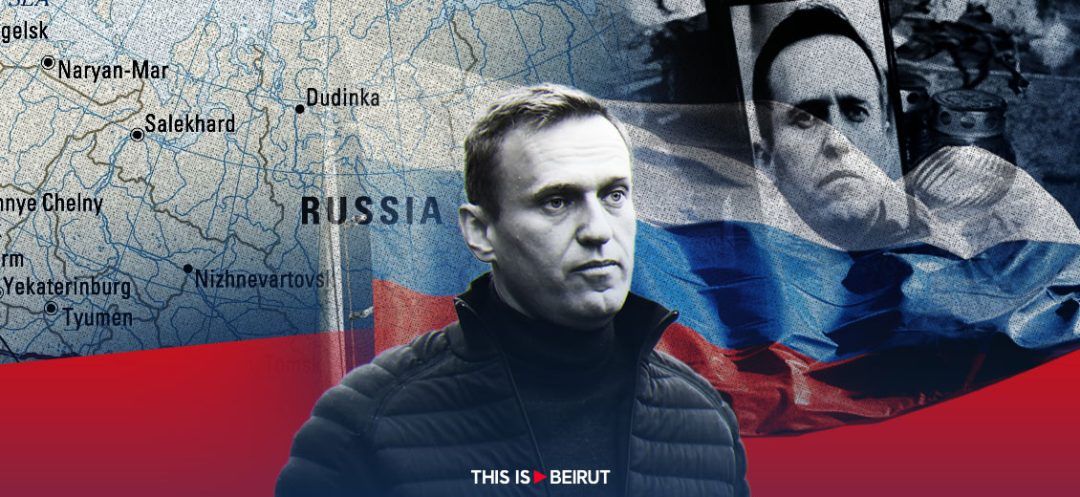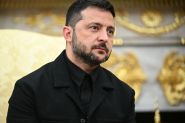- Home
- Middle East
- Alexei Navalny: The Symptomatic Assassination of an Icon

The assassination of dissident leader Alexei Navalny is no fait divers. It brings us back to picture the nightmares of the deaths of the Gulag convicts, the “banality of evil” (Banalität des Bösen) and the steadfastness of the internal opposition to Vladimir Putin. It highlights the deep-seated fears of the cynical and bloody autocrat and the suffocating yoke of state terrorism in Russia. The assassination of the prominent dissident underlines the complementarity of internal repression and external warmongering.
The democratic and vocal opposition to the heavy-handed autocracy is experiencing Putin's determination to eradicate it once more. Heir to a longstanding tradition of state murder and terrorism that trails back and forth between Ivan the Terrible and the Bolsheviks, the Putin autocracy has logged a long list of political assassinations*. Putin's imperial agenda is paired with the consolidation of the terrorist state and harsh internal repression. The trail of political assassinations is meant to dissuade opponents and create a sense of political irreversibility and moral helplessness.
This political murder is part of a larger criminal pattern that features the Bolshevik legacy and the demeanor of the emerging autocracies and hallmarks the rising Cold War. Far from being restricted to the Russian autocracy, the neo-totalitarian trend is forging its way on a double track, with external warmongering and internal hard-fisted repression. The democratic oppositions in Russia, China, Iran, Turkey, Venezuela, Nicaragua and Cuba are dealing with the same criminality at the crossroads between domestic violence and international destabilization. The convergence of these two tracks is no coincidence and seems to be defining the incoming strategic and political fault lines of a new era. This observation brings us back to the conventional wisdom bequeathed by the erstwhile Cold War era: strategic containment and economic sanctioning at the international level align with the support of domestic oppositions and the underwriting of their endeavors.
The bolting rise of the neo-fascist trends comes with a set of challenges that extend between strategic security, geopolitical quandaries and geo-strategic and economic dilemmas. States have to set their choices and give up on political gyrations. First, the future of international governance is raising serious questions about the democratic credentials and consensual credos of the United Nations General Assembly and Security Council and their institutional conglomerate. Second, the stipulations of international economic governance and its political conditionalities must be considered (World Trade Organization, World Bank, International Labor Organization…). Third, the Human Rights normative governance must be looked at along with its incidence on realpolitik and the domestic realm of politics. And finally, it is also time to reevaluate adherence to the democratic and liberal tenets which frame international institutions. Otherwise, it would be difficult to see how the future of international governance could survive and navigate the troubled waters of a disintegrating global order, which is coupled with the ascent of totalitarianism.
Observing the international scenery conveys a bleak picture that makes us wonder whether the global community even has a chance to uphold a minimal consensus when normative discrepancies are growing exponentially, politics of subversion have no more bounds and security threats have become so pervasive. These challenges need to be addressed forthrightly at a time when strategic security hazards are building up in every direction: state terrorism, political violence, nuclear threats and fierce repression.
Donald Trump's latest statement about withdrawing from the transatlantic alliance and inviting Putin to attack America’s European allies is not political trivia broadcast by an eccentric politician. China's imperial aspirations and its politics of repression, Erdogan's double game regarding his membership with NATO and partnership with the EU and the savage repression of liberal and ethnic oppositions cannot go on endlessly. Iran's waffling politics towards military nuclearization, destabilization in the Middle East and state terror are still unhinged. The continuum between organized criminality, state terrorism, Islamist terrorism and political subversion all across South Asia, Latin America, Africa and the Middle East is building cumulative evidence of a decaying global order and its destructive cycle of conflicts.
The assassination of Alexei Navalny features the whole political career of Putin, who kept a sustained record of political murder and international political subversion (four consecutive wars). This murder is not an incidental trait, it is the insignia of a new political era that questions democracy, liberal politics and world peace. This political crime disputes the political future of Russia and European and transatlantic security, and it puts the future of Ukraine at stake. Western democracies are impelled to double down on their support to Ukraine, pursue their containment policies all across the various geopolitical spectrums, strengthen the resolve of the internal oppositions and build alternative political platforms.
The new Russian martyrology extends the memorialization of the Soviet Gulag, the crimes of the cultural revolution in China, the killing fields of Pol Pot in Cambodia, the Ukrainian Holodomor, the political executions of Castro and Che Guevara, the summary trials and death sentences of the Islamic regime in Iran and those of Al-Qaeda and IS. The execution of Alexei Navalny is a tough reminder and a dire warning.
*Dissidents: Alexander Litvinienko, Sergei Magnitsky, Boris Nemtsov, Alexander Perepilichny, Anna Polikovskaya, Ravil Maganov….
*Oligarchs: Roman Abramovich, Boris Berezovsky, Vladimir Guzinski, Mikhail Khodorkovsky, Yevgeny Prigozhin, Vladimir Potanin, Alexander Smolinsky, Vladimir Vinogradov.
Read more



Comments